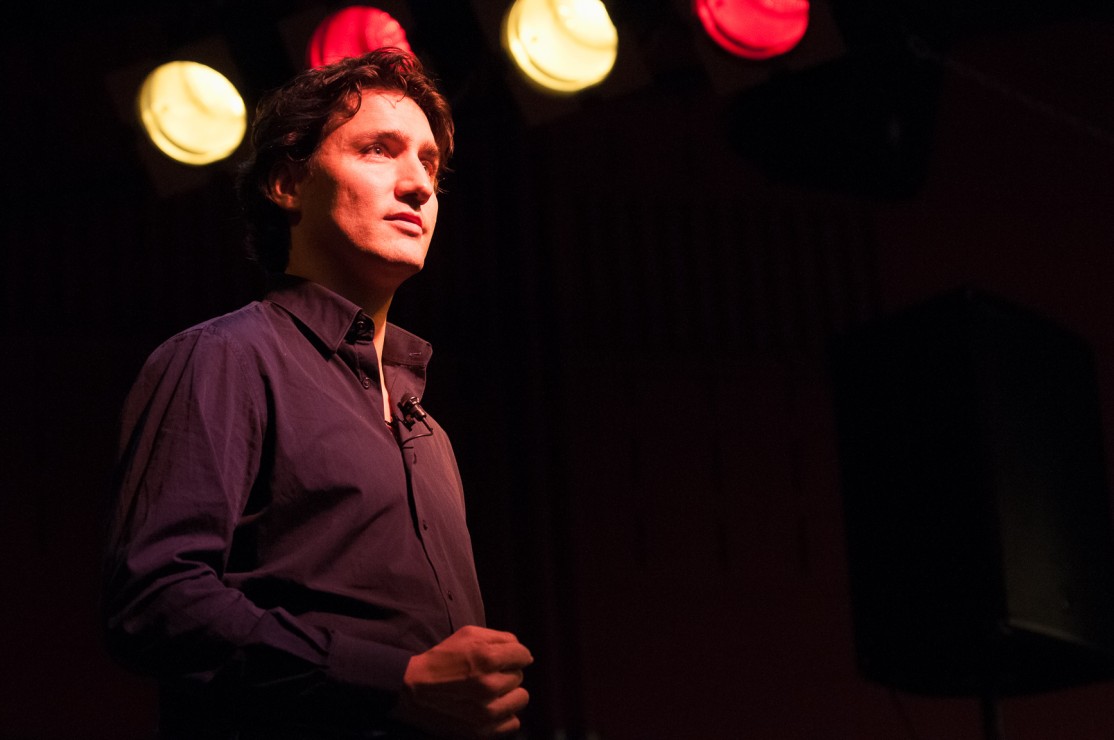While the Trudeau government faces questions about CSSG and WE, 35 000 students have been left without placements

On June 25, the federal government announced the now-cancelled Canada Student Service Grant (CSSG) program, which was to be administered by WE Charity. Prime Minister Justin Trudeau called WE the “only organization able to deliver on the scale that we need” — awarding them $43.5 million to run the $900-million program.
By July 3, WE had pulled out of the contract due to controversy around its ties to Trudeau’s family. At the time of the WE’s withdrawal, 35 000 students had already applied for the volunteer opportunities that promised to give them up to $5 000.
Amanda Patt, a UVic geography and environmental studies student, was one of those students. She contacted officials via the “I Want to Help” website on June 26 about volunteering. After inquiring about her eligibility, filling out a questionnaire, and looking at the opportunities available, Patt didn’t hear back — and was essentially left on read by the CSSG.
Danielle Keenan is the Director of Communications and Issues Management for the Minister of Diversity and Inclusion and Youth. Keenan says the government of Canada posted information on their website quickly to notify students after the CSSG was cancelled.
The Martlet dug into the now-cancelled grant program that was supposed to put money into students’ pockets this fall. The program promised to give students grant money for their service hours, but volunteer listings were vague and did not always specify an organization. Now that the program is cancelled, student groups are asking for that $900 million to go directly to students.
Students promised service hours
To receive funding from the CSSG, eligible students would have had to record and log their own hours. For 100 hours, students would have received $1 000. For 200 hours, they would have received $2 000. This pattern continues up to the maximum amount — 500 hours for $5 000. This is $10 per hour of volunteer service.
The grant money also rounds down. For instance, if a student volunteered 295 hours, they would still only receive $2 000. The minimum hours a recipient could volunteer per week was two hours for a minimum of four weeks.
“[Students] could apply for multiple different positions and volunteer with a number of different organizations,” Keenan said. “They would have been able to customize for the amount of hours that they want to do and for different types of opportunities.”
To be eligible, volunteer hours would have had to be completed between June 25 and Oct. 31 — a span of 128 days. If students were trying to reach 500 hours, the amount necessary to receive maximum funding, they would have had to volunteer four hours a day or 28 hours per week.
These placements never came to fruition. In a June 17 email provided to the Martlet, a representative from WE apologized to a student for the “slight delay” in the program’s kick-off. At this point, the prime minister had not even announced that WE was contracted to run the program.
“If you are concerned about the delay and the ability to complete your hours, please know that there is more than enough time to earn your hours within the program timelines,” the email reads. “You’ll be supported by a designated Volunteer Placement Manager to help you through each step of the journey to ensure you are successful. We are so excited to have you joining us for a summer of meaningful service!”
Of course, WE later pulled out of the contract on July 3 — well after June 25, when the program planned to have volunteers in placements..
Thousands of vague volunteer opportunities
For Patt, the CSSG program was an opportunity to serve her community during the pandemic and gain experience.
But when she was looking at the posts, Patt felt like it was a scam. The postings were vague and it wasn’t clear what organization volunteers would actually be volunteering for. Patt says there were thousands of postings for vague “content creation” positions.
Global News reported there were postings for 1 000 positions for a food security initiative and another 1 250 positions for social media help. No organization was listed for these jobs.
Although YMCA Canada told Global News they were in talks to have 391 positions posted on the site, they were surprised to learn 1 500 positions were posted under their organization.
Keenan says the vague placements would have been with various non-profits after students worked with their WE placement advisor. She could not specify how many non-profits were involved, estimating that it was over 50.
Patt knew she didn’t qualify for the grant money because of her age. When she reached out through the I Want to Help site, a representative told her she could still volunteer but would not be eligible for grant funds.
“I never did hear back after filling out the questionnaire about what my skills and abilities were,” Patt said.
One of Patt’s qualms about the CSSG is that it was administered at a national level. The vague postings were not specific to local community organizations, which Patt says did not offer opportunities to engage in “a grassroots community-driven response to [the COVID-19] crisis.”
As a mature student in summer classes, she doesn’t qualify for the Canadian Emergency Response Benefit (CERB), the Canada Emergency Student Benefit (CESB), the Canada Summer Jobs program, or the CSSG. Her student loan helped her pay for her expenses through the summer.
“I keep digging and looking for support… [and] I find that for whatever reason I’m not eligible,” Patt said. “Like myself, there’s a huge number of students that don’t match the specific little tick boxes that the government is providing support under.”
Keenan added that the government is continuing to look for options to support students and non-profits going forward.
“I know that students are disappointed that this program didn’t go forward,” Keenan said. “We are very disappointed as well. Unfortunately, because no one was placed … we are limited in what we can do on that, but we are looking at the next steps for how we can support students.”
Ongoing inquiry sheds light on program
On July 3, a month after the CSSG program was put on hold, Canada’s federal ethics commissioner Mario Dion launched an official investigation into whether the awarding of the program’s contract to WE Charity represented a breach of federal conflict-of-interest (COI) laws.

In his statement, Dion indicated that Trudeau is under investigation under sections six, seven, and 21 of the Conflict of Interest Act. These sections deal with private interests, preferential treatment, and failure to recuse. Finance Minister Bill Morneau is also being investigated. Both Trudeau and Morneau have family ties to the organization.
Trudeau’s wife Sophie Grégoire Trudeau hosts a podcast called WE Well-Being for the organization, while his mother Margaret and brother Alexandre have been paid roughly $250 000 and $32 000 respectively for appearing at WE events. They were also reimbursed around $200 000 for expenses.
Morneau’s daughter Grace, meanwhile, works for WE and his other daughter Clare has been a speaker for the organization. In 2017, WE paid $41 000 to have Morneau and his family travel to Ecuador and Kenya in order to view WE’s programs in those countries. Morneau has since said he repaid WE the full amount.
Shortly after Dion launched his investigation, the federal finance committee and the government operations committee announced they would also investigate the contract.
The aim of the ongoing investigations is to determine how much say Trudeau and Morneau had in WE being awarded the contract and whether preferential treatment was given.
Trudeau testified to the finance committee that the public service recommended WE Charity from the 20 organizations they considered and that after he learned of WE’s involvement on May 8, he sent the contract proposal back to the public service for additional review. The government has said that ultimately the decision was made based on the public service’s belief that WE was the only organization capable of administering a contract of that size. Other charities and nonprofits such as YMCA Canada have disputed this claim.
The finance committee’s investigation into the grant found that only $500 million of the allocated $900 million was available to students through various grants and service positions. Another $43.5 million would have been paid to WE charity with up to $8.75 million of that amount going to partnering charities and non-profits subcontracted to administer the program. Only $5 million had been announced initially by the government as available to partnering charities and nonprofits.
Student groups call on the government to support students beyond the CSSG
Student groups across Canada have responded to the suspension of the CSSG by calling for the government to reallocate more funds to student supports.
Bryn de Chastelain, the Chair of the Canadian Alliance of Student Associations (CASA), says he would like to see funding reinvested to support students, including international and mature students. He would also like to see funding go towards technological support for students transitioning to working and studying at home.
“We still have $900 million on the table,” said de Chastelain in an interview with the Martlet. “The CESB will go away on Sept. 1, [students] are still going to have to pay tuition, they’re still going to have to pay for rent and their bills.”
Other student groups, such as the Canadian Federation of Students (CFS), agree with the federal NDP and CASA.
“The Canadian Federation of Students continues to demand that the federal government implement a universal benefit for all students and is asking provinces to work with the federal government to immediately reduce tuition fees for all students,” the CFS said in a statement.
Victoria MP Laurel Collins says that she would have liked to see the government make CERB universal instead of creating separate programs such as the CSSG which makes it difficult for students to get the support they need.
“Students are worried right now, they are facing a global pandemic which has huge impacts on their ability to earn income,”said Collins in an interview with the Martlet. “Students [have been] left wondering how they will pay tuition in September.”
Collins urged students to get in contact with their local MP if they are unclear about which supports are available and whether or not they are eligible.
At the end of the day, de Chastelain says, it’s important students are supported.
“Regardless of which programs are implemented or how this money is reallocated I think it’s increasingly important that the federal government ensures that these programs are available to all students in Canada. I believe every student in Canada should be able to access the help that they need.”







